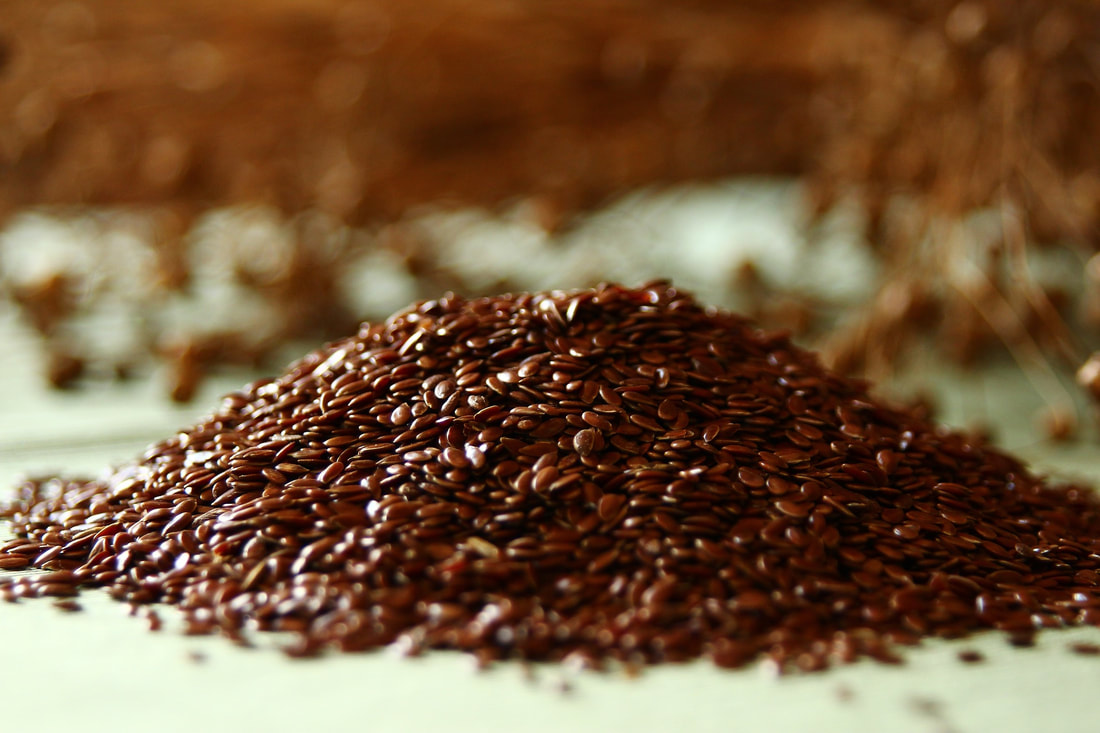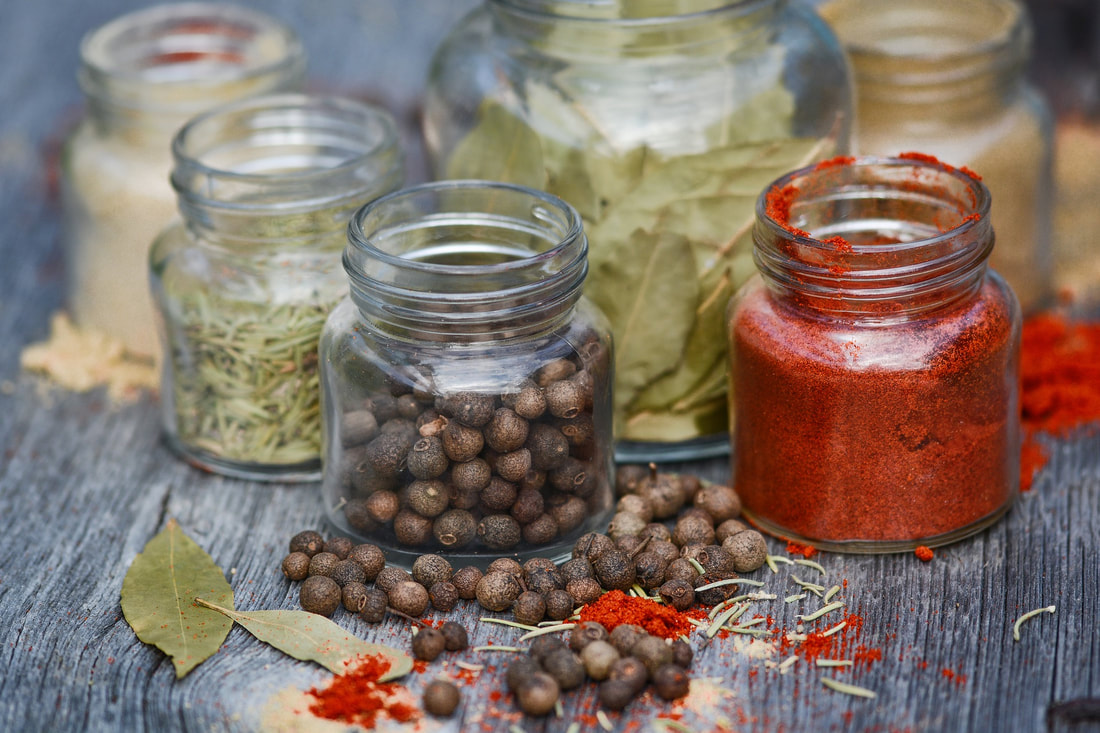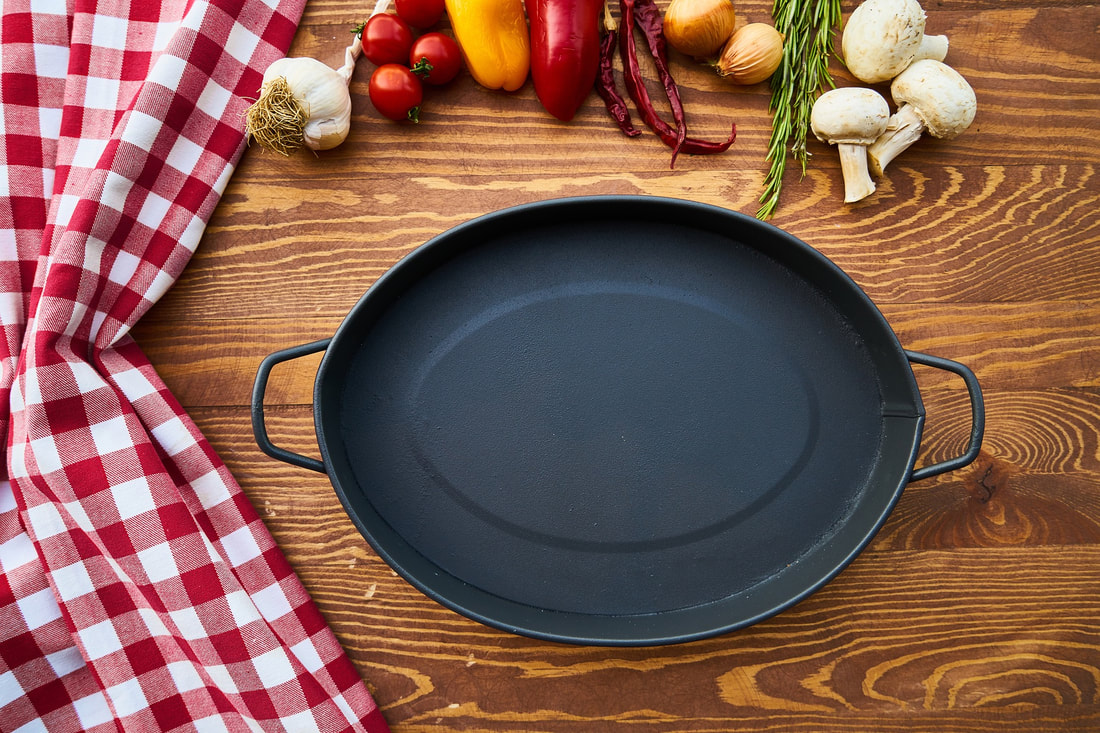Watch this video to see how to process flaxseed!
Edit: I now use Chia Seed in the mix! 3-1 ratio.
Some call it one of the most powerful plant foods on the planet. There is some evidence it may help reduce your risk of heart disease, cancer, stroke, and diabetes. Flaxseed improves collagen, aids in hot flashes, builds muscles and helps sleep patterns. That is quite a tall order for a tiny seed that has been around for centuries.
Flaxseed was cultivated in Babylon as early as 3000 BC. In the 8th century, King Charlemagne believed so strongly in the health benefits of flaxseed that he passed laws requiring his subjects to consume it. Now, thirteen centuries later, some experts say we have preliminary research to back up what Charlemagne suspected.
Although flaxseed contains all sorts of healthy components, it owes its primary healthy reputation to three of them:
• The Omega-3 essential fatty acids, "good" fats, have been shown to have heart-healthy effects. Each tablespoon of ground flaxseed contains about 1.8 grams of plant omega-3s.
• The Lignans have both plant estrogen and antioxidant qualities. Flaxseed contains 75 to 800 times more lignans than other plant foods.
• Fiber. Flaxseed contains both the soluble and insoluble types.
Flaxseed was cultivated in Babylon as early as 3000 BC. In the 8th century, King Charlemagne believed so strongly in the health benefits of flaxseed that he passed laws requiring his subjects to consume it. Now, thirteen centuries later, some experts say we have preliminary research to back up what Charlemagne suspected.
Although flaxseed contains all sorts of healthy components, it owes its primary healthy reputation to three of them:
• The Omega-3 essential fatty acids, "good" fats, have been shown to have heart-healthy effects. Each tablespoon of ground flaxseed contains about 1.8 grams of plant omega-3s.
• The Lignans have both plant estrogen and antioxidant qualities. Flaxseed contains 75 to 800 times more lignans than other plant foods.
• Fiber. Flaxseed contains both the soluble and insoluble types.
If you like to read:
Recent studies have suggested that flaxseed may have a protective effect against breast cancer, prostate cancer, and colon cancer. At least two of the components in flaxseed seem to contribute, says Kelley C. Fitzpatrick, director of health and nutrition with the Flax Council of Canada.
In animal studies, the plant omega-3 fatty acid found in flaxseed called ALA inhibited tumor incidence and growth.
Plant omega-3s help the cardiovascular system through several different mechanisms, including anti-inflammatory action and normalizing the heartbeat.
Several studies have suggested that diets rich in flaxseed omega-3s help prevent hardening of the arteries and keep plaque from being deposited in the arteries partly by keeping white blood cells from sticking to the blood vessels' inner linings.
Because plant omega-3s may also play a role in maintaining the heart's natural rhythm, they may be useful in treating arrhythmia (irregular heartbeat) and heart failure. More research is needed on this.
Eating flaxseed daily may also help your cholesterol levels. The level of LDL or "bad" cholesterol in the bloodstream has been linked to an increased risk of heart disease, obesity, diabetes, and metabolic syndrome. A study of menopausal women showed a decrease in LDL level after the women ate 4 tablespoons of ground flaxseed each day for a year. Fitzpatrick says the cholesterol-lowering effects of flaxseed are the result of the combined benefits of the omega-3 ALA, fiber, and lignans.
Diabetes
Preliminary research also suggests that daily intake of the lignans in flaxseed may modestly improve blood sugar (as measured by hemoglobin A1c blood tests in adults with type 2 diabetes).
Inflammation
Two components in flaxseed, ALA and lignans, may reduce the inflammation that accompanies certain illnesses (such as Parkinson's disease and asthma) by helping block the release of specific pro-inflammatory agents, Fitzpatrick says.
ALA has been shown to decrease inflammatory reactions in humans. And studies in animals have found that lignans can reduce levels of several pro-inflammatory agents.
Reducing inflammation associated with plaque buildup in the arteries may be another way flaxseed helps prevent heart attack and strokes.
Hot Flashes
One study of menopausal women, published in 2007, reported that 2 tablespoons of ground flaxseed mixed into cereal, juice, or yogurt twice a day cut their hot flashes in half. The intensity of their hot flashes also dropped by 57%. The women noticed a difference after taking the daily flaxseed for just one week and achieved the maximum benefit within two weeks.
Tips for Using Flaxseed
Many experts believe it is better to consume flaxseed than flax oil (which contains just part of the seed) so you get all the components. But stay tuned as researchers continue to investigate.
Thompson says, "Ground flaxseed, in general, is a great first choice, but there may be specific situations where flax oil or the lignans (taken in amounts naturally found in flaxseed) might be as good."
How much flaxseed do you need? The optimum dose to obtain health benefits is not yet known. But 1 to 2 tablespoons of ground flaxseed a day is currently the suggested dose, according to the Flax Council of Canada.
Here are more tips for using, buying, and storing flaxseed:
Buy it ground or grind it yourself. Flaxseed, when eaten whole, is more likely to pass through the intestinal tract undigested, which means your body does not get all the healthful components. If you want to grind flaxseed yourself, those little electric coffee grinders seem to work best.
Milled = ground = flax meal. Do not be confused by the different product names for ground flaxseed. Milled or ground flaxseed is the same thing as flax meal.
Whole flaxseed keeps longer. The outside shell in whole flaxseed appears to keep the fatty acids inside well protected. It is a good idea to keep your whole flaxseed in the dark, cool place until you grind it. But if it is dry and of good quality, whole flaxseed can be stored at room temperature for up to a year.
Resource: https://www.webmd.com/diet/features/benefits-of-flaxseed
In animal studies, the plant omega-3 fatty acid found in flaxseed called ALA inhibited tumor incidence and growth.
Plant omega-3s help the cardiovascular system through several different mechanisms, including anti-inflammatory action and normalizing the heartbeat.
Several studies have suggested that diets rich in flaxseed omega-3s help prevent hardening of the arteries and keep plaque from being deposited in the arteries partly by keeping white blood cells from sticking to the blood vessels' inner linings.
Because plant omega-3s may also play a role in maintaining the heart's natural rhythm, they may be useful in treating arrhythmia (irregular heartbeat) and heart failure. More research is needed on this.
Eating flaxseed daily may also help your cholesterol levels. The level of LDL or "bad" cholesterol in the bloodstream has been linked to an increased risk of heart disease, obesity, diabetes, and metabolic syndrome. A study of menopausal women showed a decrease in LDL level after the women ate 4 tablespoons of ground flaxseed each day for a year. Fitzpatrick says the cholesterol-lowering effects of flaxseed are the result of the combined benefits of the omega-3 ALA, fiber, and lignans.
Diabetes
Preliminary research also suggests that daily intake of the lignans in flaxseed may modestly improve blood sugar (as measured by hemoglobin A1c blood tests in adults with type 2 diabetes).
Inflammation
Two components in flaxseed, ALA and lignans, may reduce the inflammation that accompanies certain illnesses (such as Parkinson's disease and asthma) by helping block the release of specific pro-inflammatory agents, Fitzpatrick says.
ALA has been shown to decrease inflammatory reactions in humans. And studies in animals have found that lignans can reduce levels of several pro-inflammatory agents.
Reducing inflammation associated with plaque buildup in the arteries may be another way flaxseed helps prevent heart attack and strokes.
Hot Flashes
One study of menopausal women, published in 2007, reported that 2 tablespoons of ground flaxseed mixed into cereal, juice, or yogurt twice a day cut their hot flashes in half. The intensity of their hot flashes also dropped by 57%. The women noticed a difference after taking the daily flaxseed for just one week and achieved the maximum benefit within two weeks.
Tips for Using Flaxseed
Many experts believe it is better to consume flaxseed than flax oil (which contains just part of the seed) so you get all the components. But stay tuned as researchers continue to investigate.
Thompson says, "Ground flaxseed, in general, is a great first choice, but there may be specific situations where flax oil or the lignans (taken in amounts naturally found in flaxseed) might be as good."
How much flaxseed do you need? The optimum dose to obtain health benefits is not yet known. But 1 to 2 tablespoons of ground flaxseed a day is currently the suggested dose, according to the Flax Council of Canada.
Here are more tips for using, buying, and storing flaxseed:
Buy it ground or grind it yourself. Flaxseed, when eaten whole, is more likely to pass through the intestinal tract undigested, which means your body does not get all the healthful components. If you want to grind flaxseed yourself, those little electric coffee grinders seem to work best.
Milled = ground = flax meal. Do not be confused by the different product names for ground flaxseed. Milled or ground flaxseed is the same thing as flax meal.
Whole flaxseed keeps longer. The outside shell in whole flaxseed appears to keep the fatty acids inside well protected. It is a good idea to keep your whole flaxseed in the dark, cool place until you grind it. But if it is dry and of good quality, whole flaxseed can be stored at room temperature for up to a year.
Resource: https://www.webmd.com/diet/features/benefits-of-flaxseed









